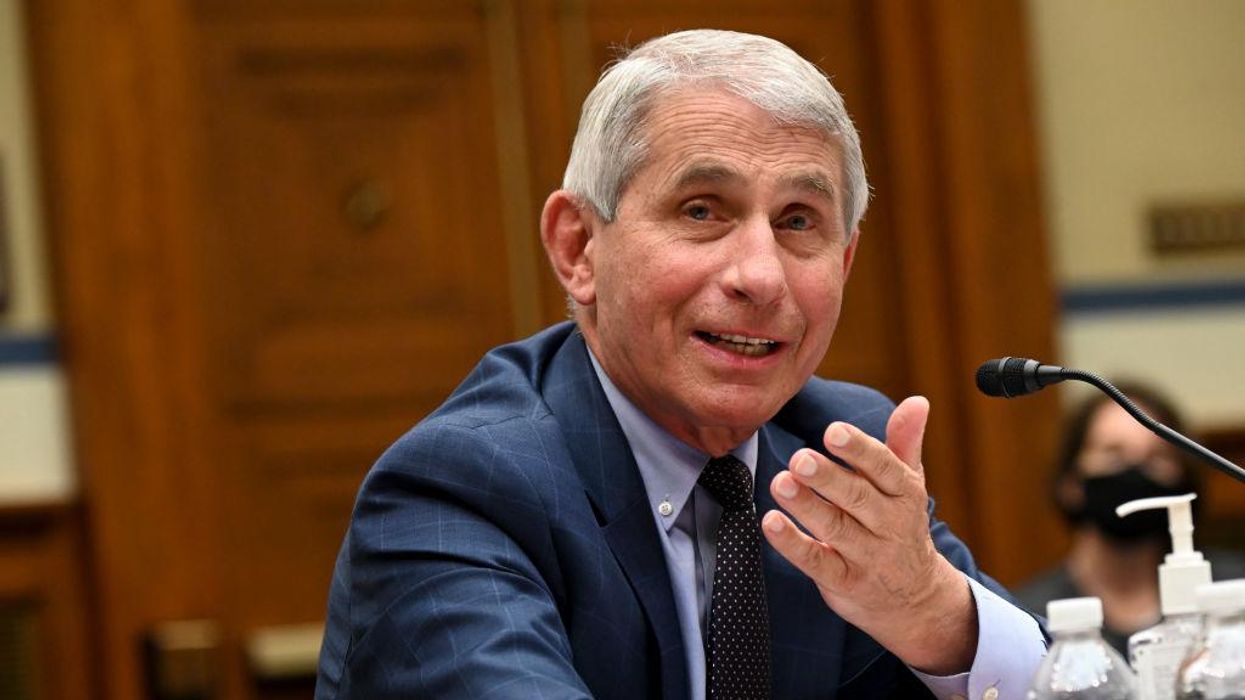
Erin Scott-Pool/Getty Images

President Biden's chief medical adviser, Dr. Anthony Fauci, defended the National Institutes of Health's controversial funding of bat coronavirus research in Wuhan, China, on Tuesday, claiming that it would have been "almost a dereliction of duty" not to assist Chinese researchers in studying the pathogens.
Fauci, who also serves as the head of the National Institute of Allergy and Infectious Diseases, an agency under the NIH umbrella, acknowledged to lawmakers during a House Appropriations subcommittee that the U.S. engaged in "a modest collaboration with very respectable Chinese scientists who were world experts on coronavirus."
The public health expert vehemently denied that any of the funding went toward risky "gain-of-function" research, which deliberately enhances pathogens, making them more transmissible or pathogenic, in order to predict which could be especially dangerous to the human population.
"That categorically was not done," he claimed.
The NIH has been under intense scrutiny of late for its decision, with NIAID's backing, to approve granting more than $7 million in American taxpayer money to the Wuhan Institute of Virology between 2014 and 2020, with at least $600,000 earmarked for the study of bat coronaviruses like the one that spawned the COVID-19 pandemic.
Despite Fauci's insistence that none of the funding was intended to support gain-of-function research, earlier in the hearing, according to the Washington Examiner, NIH Director Dr. Francis Collins offered a more murky explanation.
Collins explained to Republican Rep. Andy Harris (Md.) that researchers at the Wuhan lab "were not approved by NIH for doing gain-of-function research" but added "we are, of course, not aware of other sources of funds or other activities they might have undertaken outside of what our approved grant allowed."
Harris assessed based on Collins' answer that "we could have sent money through EcoHealth Alliance. [Then] money could have ended up at the Wuhan Institute of Virology, which might be doing gain-of-function research," noting that grant money is "somewhat fungible."
The situation is made worse by the fact that U.S. diplomats reportedly warned in 2018 that risky coronavirus research was taking place at the WIV in spite of the lab's "serious shortage of appropriately trained technicians and investigators."
Moreover, it appears at this point that the $600,000 grant sent through EcoHealth Alliance to the WIV — which Fauci characterized as "modest" — was not transferred to an independent review board specifically set up to evaluate whether grants that fund research on dangerous pathogens are worth the risk.
FY 2022 Budget Request for the National Institutes of Health (EventID=112678)youtu.be
On Tuesday, the Senate passed an amendment introduced by Republican Sen. Rand Paul (Ky.) that bans the use of American taxpayer dollars to fund gain-of-function research in China.
"We may not know whether this ever arose out of a Wuhan lab, but I think gain-of-function research where we take a deadly virus — sometimes much more deadly than COVID — and then we increase its transmissibility to mammals is wrong," Paul said in a floor speech before the vote.